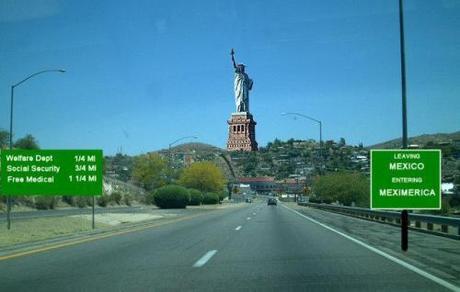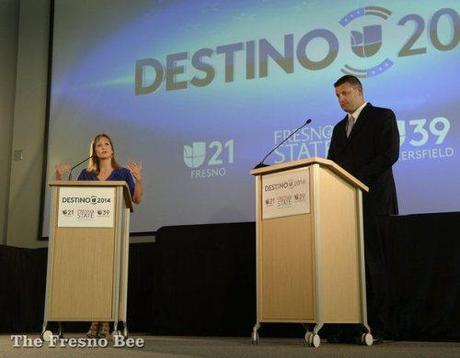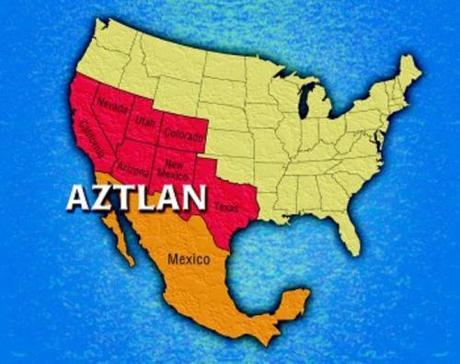
Welcome to Mexicalifornia!
Andrea Castillo reports for The Fresno Bee that on Oct. 4, 2014, a unique debate took place at Fresno State University in California’s inland valley city of Fresno.
Sponsored by Univision Fresno, the debate was between two candidates — incumbent David Valadao (R-Hanford) and his Democrat challenger, Amanda Renteria — running to represent the 21st Congressional District in the U.S. House of Representatives.
What was unique about the debate was that it was conducted entirely in Spanish.

Amanda Renteria (l); David Valadao (r)
What is ironic is that Valadao’s native tongue isn’t even Spanish but Portuguese, being the child of Portuguese immigrants who taught him their native language before he learned English. Valadao picked up Spanish during and after high school, mainly by speaking to workers on his family’s ranch. In contrast, Renteria is the daughter of a Mexican immigrant who grew up speaking both Spanish and English.
The debate was geared toward Latino voters and focused on topics including immigration, water, agriculture and the economy.
Valadao, 37, and Renteria, 39, share similar views about many key issues: Both support comprehensive immigration reform, including a path to citizenship for those here illegally,and that the government should help reunite immigrant children with their families after the youngsters enter the U.S. alone.
But Renteria noted that Valadao had voted against the California Dream Act in 2011, which allows unauthorized immigrants, including thousands in the Valley, to qualify for private scholarships and state financial aid. She said, “When children feel like they have a future they will feel different about having a baby. They will wait.”
Both candidates also agree that the Valley needs more water infrastructure, such as dams. But they differed on questions about reducing high school dropout rates, economic recovery plans, and especially the minimum wage.
California already has a high minimum wage, but Renteria said it needs to continue increasing because working families shouldn’t be poor. Valadao disagreed, saying the state already approved minimum wage increases to $9 an hour as of July 1 and $10 an hour starting Jan. 1, 2016, and that increasing business and job opportunities and making sure there is enough water are more important.

H/t Allan Wall of VDare
See also:
- 70% of Americans oppose amnesty for illegals
- Dictator Obama To Wait Until After Mid-Terms To Release Invading Horde Into America
- Illegal immigrants are enrolling in our schools – DOJ forbids verifying age
- Busloads of ADULT illegals shop in Walmart with food stamps
- Illegals bring pneumonia and swine flu to Calif-Texas Navy bases
- Most youth crossing the border illegally will get to stay, study finds
- Republicans dither while Obama and Mexico conspire in Invasion of Illegals
~Eowyn

